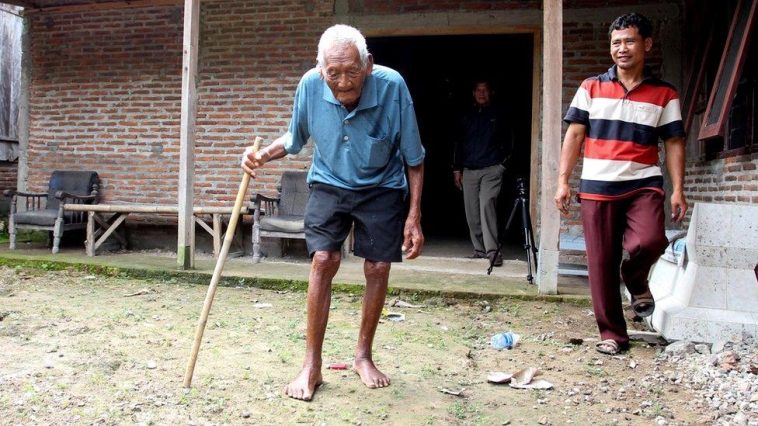In the world of record-breaking lifespans, few stories captivate like that of Indonesian supercentenarian Mbah Gotho. Born Sodimedjo, he reportedly lived to an astounding age of 146 years, potentially making him the longest-living human since the Biblical patriarchs.
Mbah Gotho: A Life Spanning Three Centuries
Mbah Gotho, affectionately known as “Grandpa Gotho,” hailed from Central Java, Indonesia. His official papers, verified by the Indonesian records office, list his birth date as December 31, 1870. Although Indonesia only began formal birth registration in 1900, officials vouched for the authenticity of his documents, citing corroborating evidence and interviews conducted with him.
If substantiated, Gotho’s age would place him well beyond the current verified record holder for human longevity, Jeanne Calment of France, who passed away in 1997 at the age of 122. Despite this, independent international verification of Gotho’s claim was never achieved before his death in 2017.
When asked about the secret to his longevity, Gotho humbly attributed it to one simple virtue: patience. Despite his advanced years, Gotho remained active, spending much of his time listening to the radio after his vision deteriorated, preventing him from watching television.
The Legacy of Biblical Longevity
The extraordinary lifespan attributed to Mbah Gotho brings to mind the Biblical accounts of Methuselah, who is said to have lived 969 years, as described in the Book of Genesis. Methuselah’s story, along with the accounts of other early patriarchs living hundreds of years, reflects the ancient belief in dramatically extended lifespans before God limited human life to 120 years.
While modern science suggests ancient humans typically lived much shorter lives—averaging around 30 years during certain prehistoric periods—these Biblical accounts continue to inspire curiosity about the limits of human longevity.
Other Claims to Extraordinary Lifespan
Mbah Gotho’s case isn’t the only claim to challenge conventional human lifespans. Throughout history, individuals have made extraordinary assertions about their age, often lacking the documentation needed to verify their claims.
- Zaro Aga: A Turkish-Kurdish man claimed to have lived between 1774 and 1934, making him 160 years old at the time of his death. However, research suggested he was closer to 97 years old.
- James Olofintuyi (Nigeria): Claimed to have lived 171 years but could not provide verifiable records to support this.
- Dhaqabo Ebba (Ethiopia): Allegedly 163 years old, though his claim remains unverified due to a lack of supporting documentation.
Despite these stories, the record for the oldest verified human lifespan still belongs to Jeanne Calment, whose age has been rigorously documented.
Science and Longevity
While tales of extreme longevity capture the imagination, scientific evidence suggests that humans are biologically unlikely to surpass the age of 120 without significant advancements in medicine. Factors such as genetics, lifestyle, and healthcare contribute significantly to lifespan, though claims like Mbah Gotho’s continue to spark debate.
Interestingly, while the Bible recounts humans living up to 800 years or more, modern archaeology and anthropology indicate that ancient humans rarely lived beyond 30 years due to harsh living conditions and limited medical knowledge.
Conclusion
Mbah Gotho’s story, whether fully verified or not, is a remarkable testament to the mysteries of human longevity. His life, spanning three centuries, serves as a reminder of the resilience and adaptability of the human spirit. While his age remains a matter of debate, his legacy continues to inspire curiosity about the true limits of human life.


